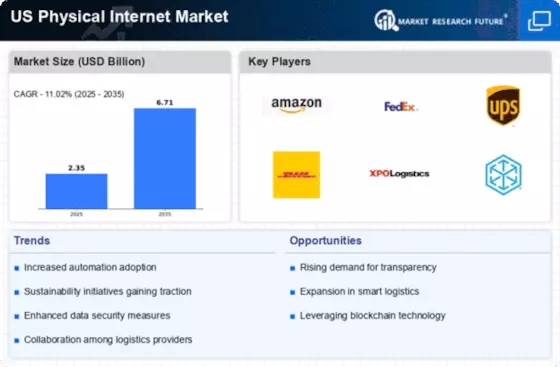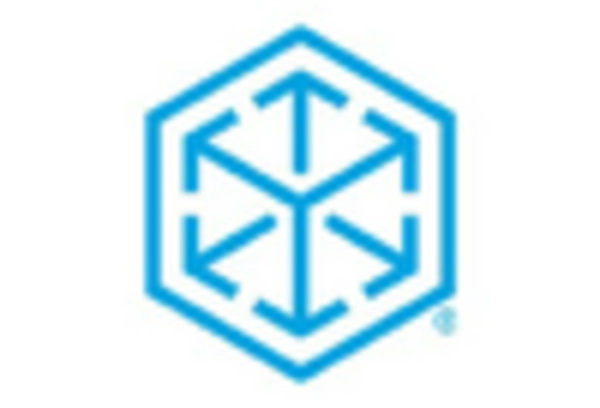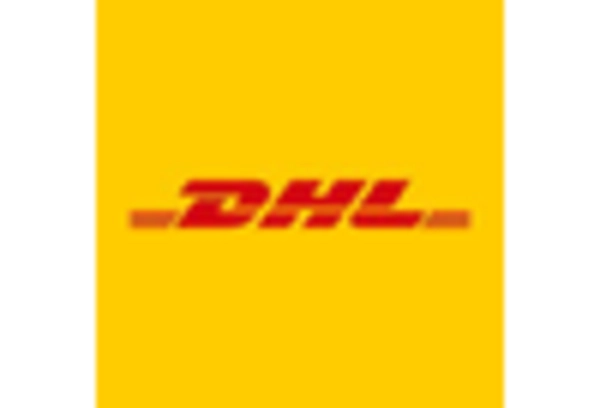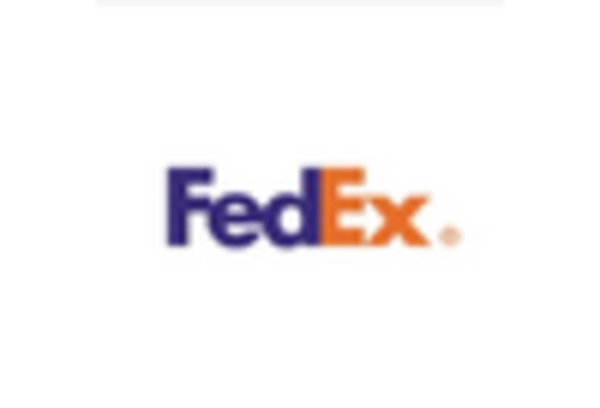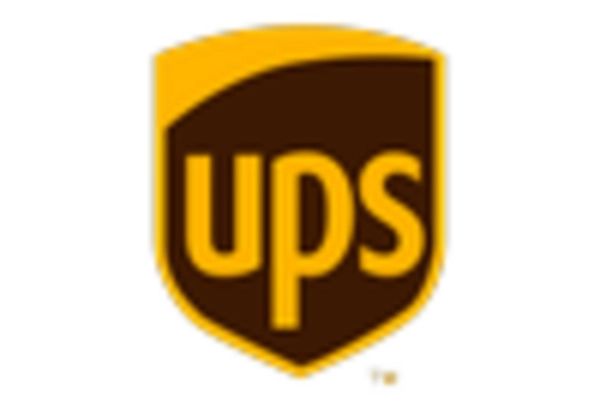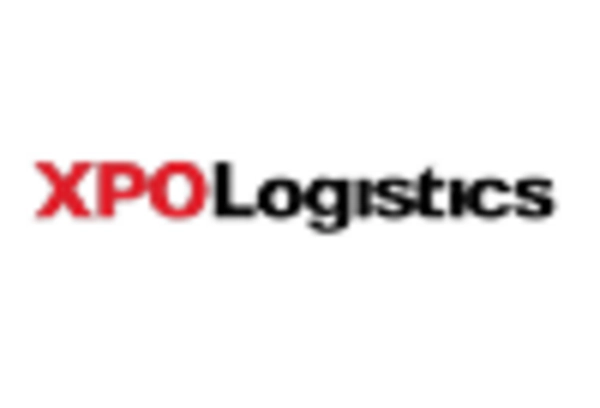Growing E-commerce Demand
The US Physical Internet Market is experiencing a surge in demand driven by the rapid growth of e-commerce. As consumers increasingly prefer online shopping, logistics and supply chain networks must adapt to accommodate this shift. In 2025, e-commerce sales in the United States reached approximately 1 trillion USD, indicating a robust market that necessitates efficient physical internet solutions. This growth compels companies to enhance their logistics capabilities, streamline operations, and invest in technologies that facilitate faster and more reliable deliveries. The integration of physical internet principles, such as modularity and interoperability, is likely to play a crucial role in meeting these evolving consumer expectations, thereby shaping the future landscape of the US Physical Internet Market.
Government Policies and Regulations
The US Physical Internet Market is significantly influenced by government policies aimed at enhancing logistics efficiency and sustainability. Recent initiatives, such as the Infrastructure Investment and Jobs Act, allocate substantial funding for transportation and logistics infrastructure improvements. These policies encourage the adoption of innovative technologies and practices that align with physical internet principles. Furthermore, regulatory frameworks promoting data sharing and collaboration among logistics providers are emerging, which could facilitate the seamless integration of physical internet systems. As these policies evolve, they are expected to create a more conducive environment for the growth of the US Physical Internet Market, fostering innovation and competitiveness.
Technological Advancements in Logistics
Technological advancements are a pivotal driver of the US Physical Internet Market. Innovations such as the Internet of Things (IoT), artificial intelligence (AI), and blockchain are transforming logistics operations. For instance, IoT devices enable real-time tracking of shipments, enhancing visibility and efficiency in supply chains. In 2025, the market for IoT in logistics is projected to exceed 30 billion USD, underscoring the potential for growth in this sector. These technologies not only improve operational efficiency but also align with the principles of the physical internet, promoting interconnectedness and data-driven decision-making. As companies increasingly adopt these technologies, the US Physical Internet Market is likely to witness substantial advancements.
Sustainability and Environmental Concerns
Sustainability is becoming a central focus within the US Physical Internet Market, driven by growing environmental concerns and consumer preferences for eco-friendly practices. Companies are increasingly adopting sustainable logistics solutions, such as electric vehicles and optimized routing, to reduce their carbon footprint. In 2025, the market for green logistics in the United States is expected to reach 100 billion USD, reflecting a significant shift towards environmentally responsible practices. This trend aligns with the principles of the physical internet, which emphasizes resource efficiency and waste reduction. As sustainability becomes a priority, the US Physical Internet Market is likely to evolve, with companies seeking innovative solutions that meet both operational and environmental goals.
Increased Collaboration Among Stakeholders
Collaboration among various stakeholders is emerging as a critical driver in the US Physical Internet Market. As companies recognize the benefits of shared resources and information, partnerships between logistics providers, technology firms, and government entities are becoming more prevalent. This collaborative approach facilitates the development of integrated systems that enhance efficiency and reduce costs. For example, joint ventures focused on data sharing and infrastructure development are likely to become more common, fostering a more interconnected logistics ecosystem. As stakeholders work together to implement physical internet principles, the US Physical Internet Market is expected to experience enhanced innovation and improved service delivery.


